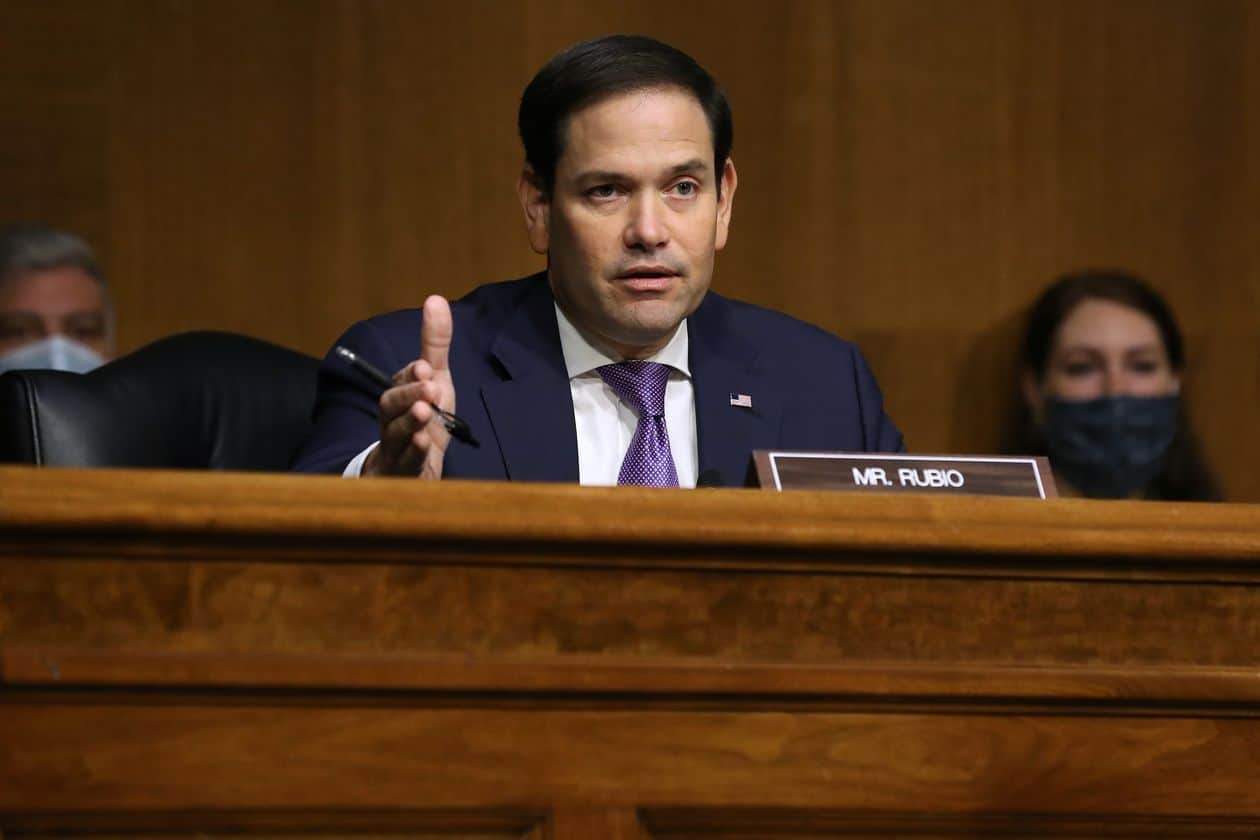China Sanctions 11 Americans Over U.S. Moves Against Hong Kong

China said it would impose sanctions on 11 U.S. citizens, including Republican Sens. Ted Cruz and Marco Rubio, in retaliation for similar measures by Washington against Hong Kong and mainland Chinese officials on Friday.
The measure is the latest volley in a diplomatic spat between the U.S. and China that has involved closing consulates in Houston and the southwestern Chinese city of Chengdu and a previous round of reciprocal sanctions. President Trump has also been turning up the pressure on China on several fronts, holding military exercises in the South China Sea and signing a pair of executive orders that would restrict transactions involving two China-based smartphone apps, TikTok and WeChat.
China’s Foreign Ministry, which announced the sanctions, didn’t offer details on what they would entail. The move appears to be largely symbolic and restrained, as most of those listed had been targeted by Beijing before.
“In response to the erroneous actions of the U.S., China has decided to impose sanctions today on those individuals who behaved badly on Hong Kong-related issues,” said China’s Foreign Ministry spokesman Zhao Lijian during Monday’s daily press briefing.
China had already announced punitive actions against Sens. Cruz and Rubio and other U.S. officials last month after the Trump administration penalized senior Chinese officials over the treatment of Uighur Muslims in the far-western Xinjiang region.
The U.S. then blacklisted the Xinjiang Production and Construction Corps, a paramilitary organization that runs large-scale farms and other businesses in the region.
In a commentary on Sunday, the Global Times, a state-backed nationalistic tabloid, urged Beijing to show restraint in dealing with the U.S. The editors called on the Chinese government to refrain from tit-for-tat actions just to gain the moral high ground, arguing that many of the U.S. moves were driven by the coming presidential election. “If we ignore those actions and meet them mainly with ridicule, then we might gain more international support than be directly confronting them,” the editorial said.
The Foreign Ministry’s Mr. Zhao also listed, among others, the heads of five U.S.-based nongovernmental organizations, including Kenneth Roth of Human Rights Watch, Carl Gershman of the National Endowment for Democracy and Michael Abramowitz of Freedom House.
They, too, had already been subjected to sanctions in December because of their pro-democracy stance on Hong Kong shortly after President Trump signed the Hong Kong Human Rights and Democracy Act into law to monitor the city’s autonomy. Mr. Roth had been refused entry to Hong Kong in January. Members of the Trump administration weren’t included.
Besides Messrs. Cruz, of Texas, and Rubio, of Florida, Beijing also imposed sanctions on Republican Sens. Tom Cotton of Arkansas, Josh Hawley of Missouri and Pat Toomey of Pennsylvania, as well as Rep. Chris Smith (R., N.J.). All are hawkish on China and have urged the U.S. government to adopt harder stances toward Beijing, such as sanctions on Chinese officials for their actions in Xinjiang or Hong Kong, or their role in the spread of the coronavirus.
“Last month China banned me. Today they sanctioned me. I don’t want to be paranoid but I am starting to think they don’t like me,” Mr. Rubio tweeted in response to the news of Beijing’s measure on Monday morning.
Mr. Roth, on Twitter Monday morning, called the move “little more than an effort to distract attention from its wholesale assault on the rights of the people of Hong Kong.”
White House press secretary Kayleigh McEnany called China’s move a “symbolic and ineffectual action” in a briefing on Monday, but declined to say whether the president would take steps to respond.
Jimmy Lai, the outspoken publisher of popular Hong Kong pro-democracy newspaper Apple Daily, was arrested Monday on suspicion of foreign collusion under a new national-security law, under which Beijing is asserting more control in the former British colony.
The U.S. accused 11 Hong Kong and mainland Chinese officials of curtailing political freedoms in the city under the national security law. The Treasury Department targeted Hong Kong Chief Executive Carrie Lam, the city’s police commissioner and several political secretaries responsible for implementing the law.
“The United States stands with the people of Hong Kong and we will use our tools and authorities to target those undermining their autonomy,” Treasury Secretary Steven Mnuchin said in a statement accompanying the decision.
Photo: Marco Rubio is among those Beijing said it would sanction in retaliation for similar moves by the Trump administration. - PHOTO: CHIP SOMODEVILLA/GETTY IMAGES
Link: https://www.wsj.com/articles/china-imposes-sanctions-on-11-americans-over-hong-kong-11597056487











